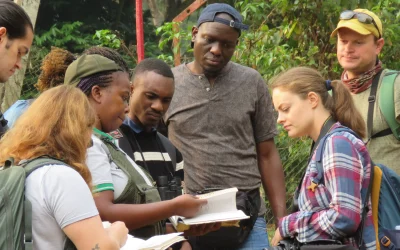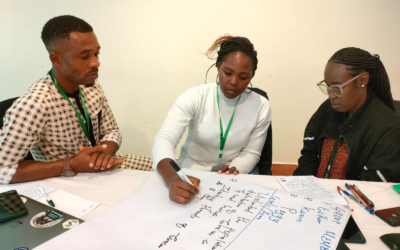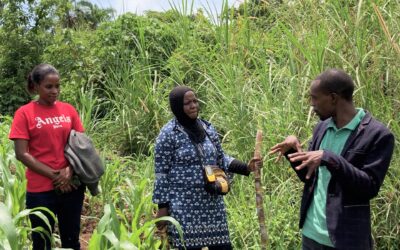You don’t need experts to collect useful data to show how our species are faring. That was the message from 22 African conservation managers from 10 African countries who attended our workshop at the end of April. These managers spent five days on a pioneering workshop that showed them how they can use citizen science data for accurate monitoring, for management, and to help influence policy decisions.
The workshop, led by the Tropical Biology Association, was a response to the pressing need for skills to analyze and interpret the growing mass of citizen science data in Africa. Citizen science experts from the British Trust for Ornithology, African Demography Unit, University of Nairobi, Arocha Kenya and the Tropical Biology Association shared their knowledge through practical training and real-life case studies. The participants show-cased their rich variety of projects gathering citizen science data as diverse as elephants, birds, sea horses, dolphins, and fungi.
“Citizen Science has tremendous potential to strengthen conservation in Africa, both by generating public interest, and in gathering information. We designed the training in response to a real demand from citizen science managers who told us they need skills in analyzing and presenting the results from the data they are collecting. By tailoring the workshop to meet this challenge, we know that the citizen scientists we have just trained will be in strong positions to use their results to influence policy as well as inform citizen science practice on the ground” says TBA Director, Dr. Rosie Trevelyan
The workshop topics included how to analyse and present citizen science data to help with advocacy and communication. Managers used their own data to learn how to produce maps to show the distribution of the species they are monitoring and whether key populations are changing over time.
Lucas Pius works for the Ministry of Environment and Tourism in Namibia. He explained that
“although we have a lot of data, we have not been able to do anything with it. I am now going to improve our protocols so we collect more useful data and show my colleagues in the ministry how to do the analysis. This information is very valuable for telling what is happening to the wildlife in the park”.
Clara Cassell from Liberia said
“I needed these skills because I want to show wildlife densities and map where the conflicts are with the local communities. This is important so we can inform where the rangers should spend more effort and time”
By the end of the workshop, everyone had produced maps, graphs showing population trends, and other analyses of their citizen science data. And the learning is still continuing. The participants have forged a lively network which they are already using to advise each other and share results thanks to their new skills
“It is amazing how much you can achieve in just 5 days” said Anthony Kuria, one of the Tropical Biology Association trainers. “This just shows that with the right people and the right training, we can be confident that we will have real impact in the long term”
The workshop was part of a project called Citizen Science in Africa- making it work for conservation a partnership between the Tropical Biology Association, British Trust for Ornithology, University of Cambridge, National Museums of Kenya, and the Kenya Bird Map Project. It was funded by the Cambridge Conservation Initiative Collaborative Fund.
“Before I came to the workshop I could not make sense of my data and I found producing useful outputs a real challenge. Now I know how to do it; I am going to help Kenya Bird map office produce the maps that we have been longing to do. This workshop means there is now a team of us who can analyse our citizen science results and help each other.”
Edwin Gichohi, Kenya






